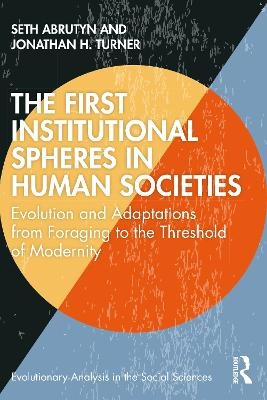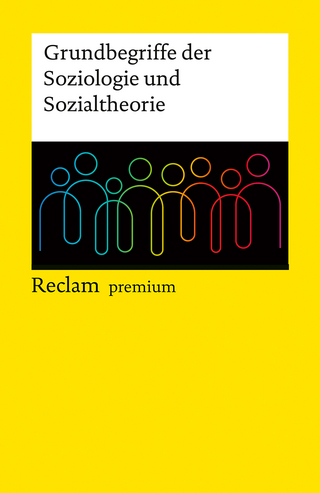
The First Institutional Spheres in Human Societies
Routledge (Verlag)
978-1-032-12408-7 (ISBN)
Few concepts are as central to sociology as institutions. Yet, like so many sociological concepts, institutions remain vaguely defined. This book expands a foundational definition of the institution, one which locates them as the basic building blocks of human societies—as structural and cultural machines for survival that make it possible to pass precious knowledge from one generation to the next, ensuring the survival of our species. The book extends this classic tradition by, first, applying advances in biological evolution, neuroscience, and primatology to explain the origins of human societies and, in particular, the first institutional sphere: kinship. The authors incorporate insights from natural sciences often marginalized in sociology, while highlighting the limitations of purely biogenetic, Darwinian explanations. Secondly, they build a vivid conceptual model of institutions and their central dynamics as the book charts the chronological evolution of kinship, polity, religion, law, and economy, discussing the biological evidence for the ubiquity of these institutions as evolutionary adaptations themselves.
Seth Abrutyn is Associate Professor in the Sociology Department at the University of British Columbia. His research straddles two primary streams: the evolution of human institutions, like religion or polity, and the role place and place-based culture play in shaping adolescent mental health and suicide. His work has won several national awards, and can be found in outlets like American Sociological Review, Sociological Theory, and American Journal of Public Health. Jonathan H. Turner was named the 38th University Professor in the history of the University of California system. He is primarily a general sociological theorist. He has authored or coauthored 43 books, and edited nine additional books. This book on the first human institutions is his fourth book on this topic, focusing on the origin of human institutional systems and their evolution to the structural and culture base necessary for modernity.
Introduction
On the Origins of Human Capacities
Selection as the Force Driving Institutional Evolution
Building Human Institutions
The Dynamics of Institutional Autonomy
The First Human Institution: The Evolution of the Nuclear Family and Kinship
The Elaboration of Kinship
The Emergence of Polity in Human Societies
The Increasing Autonomy of Polity
The Emergence of Religion
Religious Evolution and Religious Autonomy
The Emergence of Economy
The Emergence of Law
Legal Autonomy and the Expanding Institutional Infrastructure
Institutional Evolution To The Brink of Modernity
Institutional Evolution and Stratification
The Evolved Institutional Order and the West
Bibliography
| Erscheinungsdatum | 18.03.2022 |
|---|---|
| Reihe/Serie | Evolutionary Analysis in the Social Sciences |
| Zusatzinfo | 13 Tables, black and white; 22 Line drawings, black and white; 1 Halftones, black and white; 23 Illustrations, black and white |
| Verlagsort | London |
| Sprache | englisch |
| Maße | 152 x 229 mm |
| Gewicht | 399 g |
| Themenwelt | Sozialwissenschaften ► Ethnologie |
| Sozialwissenschaften ► Soziologie ► Allgemeines / Lexika | |
| Sozialwissenschaften ► Soziologie ► Makrosoziologie | |
| ISBN-10 | 1-032-12408-3 / 1032124083 |
| ISBN-13 | 978-1-032-12408-7 / 9781032124087 |
| Zustand | Neuware |
| Haben Sie eine Frage zum Produkt? |
aus dem Bereich


